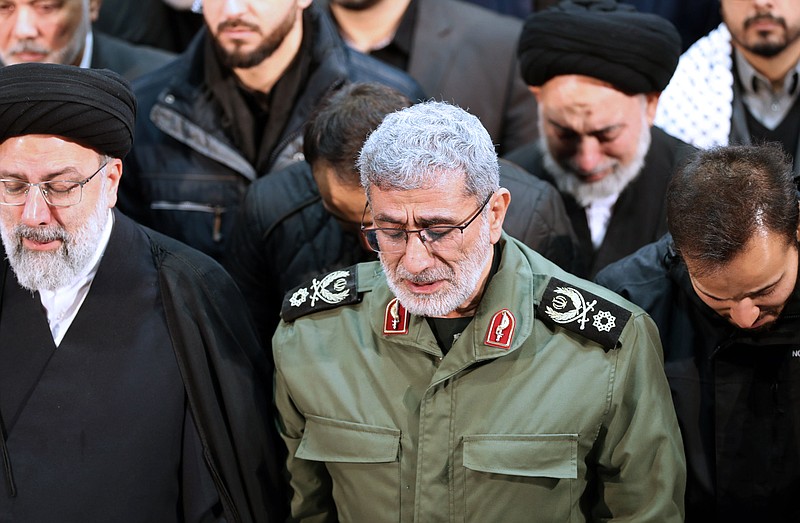BAGHDAD (AP) - Iran has instructed allies across the Middle East to be on high alert and avoid provoking tensions with the U.S. that could give an outgoing Trump administration cause to launch attacks in the U.S. president's final weeks in office, Iraqi officials have said.
The request - delivered by a senior Iranian general to allies in Baghdad this week - reflects the regional anxiety over President Donald Trump's behavior and the uncertainty in the transition period until President-elect Joe Biden takes over in two months.
Iran's allies have collectively welcomed Trump's election defeat. Under his presidency, tensions with Iran escalated, reaching fever pitch at the beginning of the year with the U.S. airstrike that killed Iran's top general, Qassim Soleimani, at the Baghdad airport. Iran launched a ballistic missile attack in response to the fatal drone strike, targeting U.S. soldiers in Iraq and wounding dozens.
Trump also withdrew America in 2018 from Iran's nuclear deal with world powers, meant to prevent it from developing nuclear weapons, and re-imposed sanctions on Iran, crippling its economy.
Iran has since abandoned all limits on its uranium enrichment program, even as the deal's other international partners have tried unsuccessfully to salvage it. The incoming Biden administration has stated plans to rejoin or renegotiate the 2015 nuclear accord.
But there is growing concern over what Trump, who is refusing to concede the election, might do in the last days of his presidency - including a potential strike on America's enemies abroad. On Thursday, an adviser to Iran's supreme leader warned in an interview with the Associated Press that any American attack on Iran could set off a "full-fledged war" in the region.
"We don't welcome war. We are not after starting a war," said Hossein Dehghan, who served in Iran's paramilitary Revolutionary Guard before becoming a defense minister under President Hassan Rouhani.
The concern does not appear to be rooted in anything concrete - Trump has, in fact, ordered a drawdown in U.S. troops in Iraq and Afghanistan to be completed by mid-January - but rather in general nervousness about the unpredictability of Trump's actions. His firing of Defense Secretary Mark Esper two days after the election triggered a flurry of speculation about whether it was related to a broader plan to strike abroad.
Iraq, where the U.S.-Iran rivalry has chiefly played out, is seen as a potential arena. Frequent attacks against the U.S. Embassy in Baghdad in recent months led the Trump administration to threaten to close the mission, a move that sparked a diplomatic crisis and diplomatic back channel messaging that led to an informal truce a few weeks ahead of the U.S. election.
With two months to go until a Biden administration takes over, Iranian Gen. Esmail Ghaani, head of the Guard's expeditionary Quds Force, delivered Tehran's request during a meeting with Iranian-backed Iraqi militia factions and Shiite politicians in Baghdad this week, according to two senior Iraqi Shiite politicians who attended the meetings in Baghdad.
The message: Stand down to avoid giving Trump the opportunity to initiate a fresh tit-for-tat round of violence.
And to the Iraqi Shiite paramilitaries: Be calm and cease attacks for now against American presence in Iraq.

